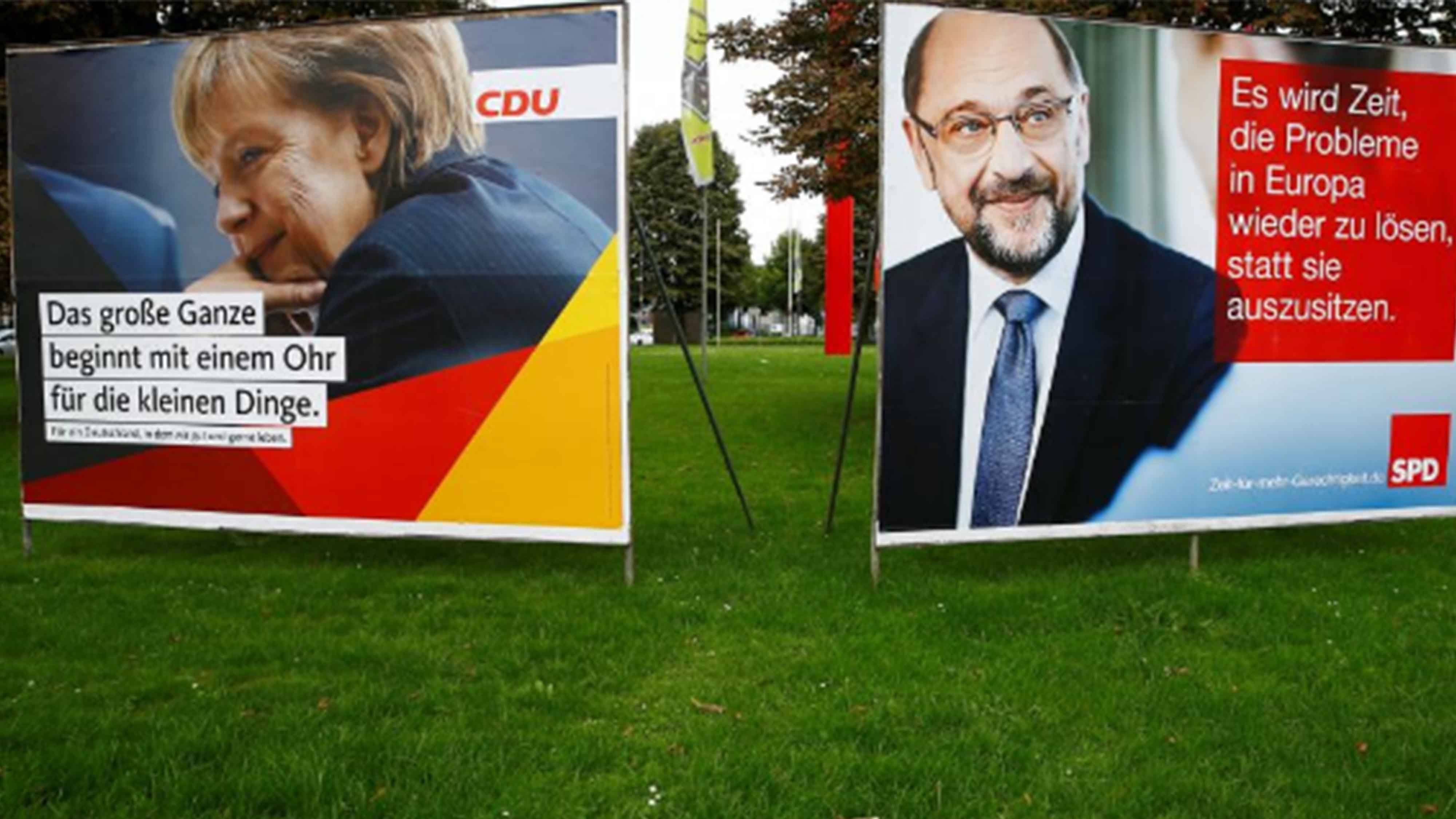It's been three months since Germany held its general elections. Angela Merkel, as expected, secured her fourth term as German chancellor, but support for her conservative CDU-CSU fell short. In the meantime, the far-right party, "Alternative for Germany" (AfD) has made its way into parliament.
CGTN anchor Tian Wei traveled to Germany back in September to cover the election process. She shared her views on Germany's political climate with us.
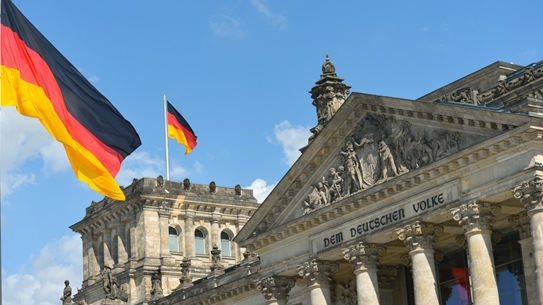
A front view of the Reichstag building, the seat of the German Parliament, on Tuesday, August 29, 2017, in Berlin, Germany. / VCG Photo
A front view of the Reichstag building, the seat of the German Parliament, on Tuesday, August 29, 2017, in Berlin, Germany. / VCG Photo
A 150-kilometer long wall once divided the country. Decades later, Germany has picked itself up, has become a strong economy and has also became a respected partner for many. There are questions too: The economy, immigration, the rise of the far right, and the role of Germany both in Europe and in the world. By the way, what will another year of Angela Merkel be like?
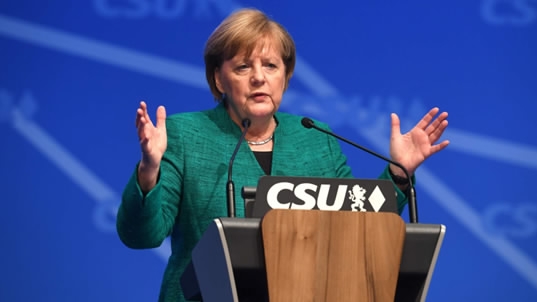
German Chancellor and leader of the Christian Democratic Union (CDU) party, Angela Merkel delivers her speech on Dec. 15, 2017 in Nuremberg, southern Germany, during the congress of the CSU party, the Bavarian sister party of German Chancellor's CDU. / VCG Photo
German Chancellor and leader of the Christian Democratic Union (CDU) party, Angela Merkel delivers her speech on Dec. 15, 2017 in Nuremberg, southern Germany, during the congress of the CSU party, the Bavarian sister party of German Chancellor's CDU. / VCG Photo
This is a critical year for Germany, and also for Europe, as well. We all understand the European Union (EU) is going through a very tough time and Germany is an important country as well as the flagship for the EU, which is still trying to bring the European continent together. At this point, a coalition government has still not been formed. The CDU and SPD have been working together for four years as part of the last administration, and yet during that time, the SPD found they did not benefit from being a member of the coalition government.
"Tonight, our work with the CDU and the CSU in the grand coalition ends," leader of SPD Martin Schulz said.
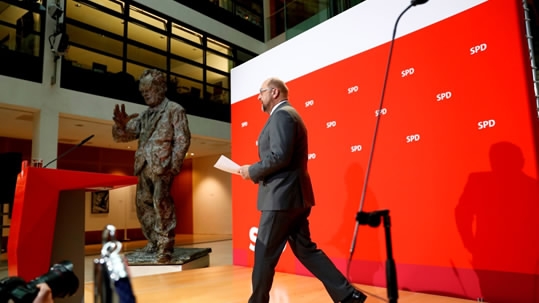
Leader of the Social Democratic Party (SPD), Martin Schulz, arrives to address a press conference in Berlin on November 20, 2017, after coalition talks failed overnight. /VCG Photo
Leader of the Social Democratic Party (SPD), Martin Schulz, arrives to address a press conference in Berlin on November 20, 2017, after coalition talks failed overnight. /VCG Photo
"We will seek dialogue, with the Liberals, with the Greens, but also with the SPD. It is important that Germany has a stable government. I've heard what the SPD said yesterday, but despite everything, we have to keep in touch," German Chancellor Angela Merkel pointed out.
As the result of the election was being announced to the public, the SPD said they would never want to become part of a coalition government any more, and they would rather to be a member of the opposition party.
To me, the AfD is almost like Donald Trump. Many of the people that we talked to from the interviews would never admit that they would like to be associated with the AfD. However, they did admit very conservative attitude toward immigrants and refugees. Those views were actually embraced by many in Germany.
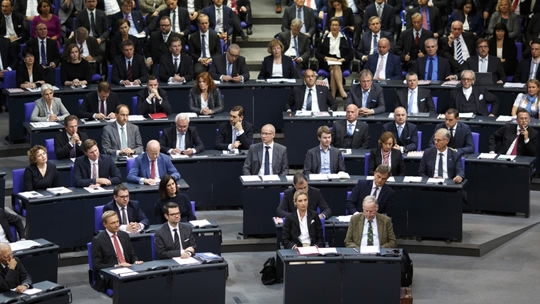
On the left side sitting members of the Free Democratic Party (FDP) faction and members of the right-wing Alternative for Germany (AfD) faction on the right side at the of the new Bundestag on October 24, 2017 in Berlin, Germany. /VCG Photo
On the left side sitting members of the Free Democratic Party (FDP) faction and members of the right-wing Alternative for Germany (AfD) faction on the right side at the of the new Bundestag on October 24, 2017 in Berlin, Germany. /VCG Photo
"We have an uncontrolled influx of migrants, with hundreds of thousands of migrants who are obliged to leave the country. And it has been confirmed by countless reports that this refugee policy that was carried out in 2015 is lacking in every legal basis,” AfD top candidate Alice Weidel said.
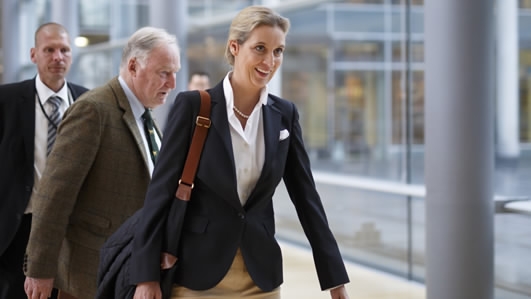
Co-leader of the AfD Bundestag faction Alice Weidel (R) and Co-leader of the AfD Bundestag faction Alexander Gauland (C) walk to the opening session of the new Bundestag on October 24, 2017 in Berlin, Germany. / VCG Photo
Co-leader of the AfD Bundestag faction Alice Weidel (R) and Co-leader of the AfD Bundestag faction Alexander Gauland (C) walk to the opening session of the new Bundestag on October 24, 2017 in Berlin, Germany. / VCG Photo
You saw the rise of right wing political parties inside European politics. Of course, every country which witnessed this phenomenon had their own reasons, such as in France, where - even though they did not win - they got into the very final round of the presidential election. So you can see they are signs of far-right parties rising, but what impact they are likely to make is still a big question. Even though there are a lot of uncertainties ahead, European countries are still working very hard on some of the core issues and core values that they shared during the past decade.

